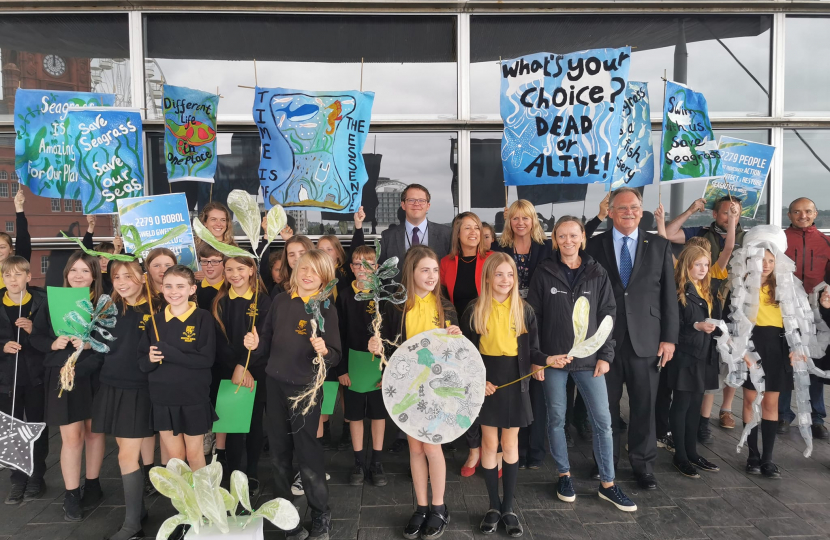
On Tuesday, June 6th, Joel James met with children from St Peter’s Primary School in Rossett at the Welsh Parliament as they handed in the joint petition by Project Seagrass and WWF Cymru.
The petition, signed by over 2,000 people, is calling on the Welsh Government to take urgent action to protect seagrass. Immediate action to restore and conserve seagrass meadows is needed as the underwater habitat provides invaluable benefits to both the environment and local communities, which will allow Wales to have sustainable economic growth in the future.
Seagrass meadows are underwater ecosystems consisting of dense beds of seagrass plants that grow in shallow coastal waters. This flowering plant adapts to survive in a marine environment. With long, narrow leaves and root systems, it is often found in both tropical and temperate regions around the world, often in sheltered coastal areas such as bays, lagoons, and estuaries.
In recent years, seagrass meadows, delicate underwater habitats teeming with life, have faced severe threats from human activities such as coastal development, pollution, and climate change. Their decrease has far-reaching effects on water quality, biodiversity, coastal protection, and climate change mitigation.
Earlier in the year, Joel James, Member of the Welsh Parliament for South Wales Central, visited Project Seagrass Nursery in Carmarthen. Through this experience, Joel witnessed the potential benefits that seagrass and other blue card ecosystems can have on our environment and understands that it is crucially important that seagrass meadows are protected.
Joel James aims to drive positive change and ensure the preservation of seagrass meadows in Wales. After receiving the petition, Joel said:
"Their protection is essential not just for the variety of marine species they support, but also for the many advantages they offer to our communities, including the maintenance of fisheries, prevention of erosion along coastlines, and carbon dioxide sequestration. Maintaining seagrass meadows is an investment in the environment's future and the welfare of future generations.”




